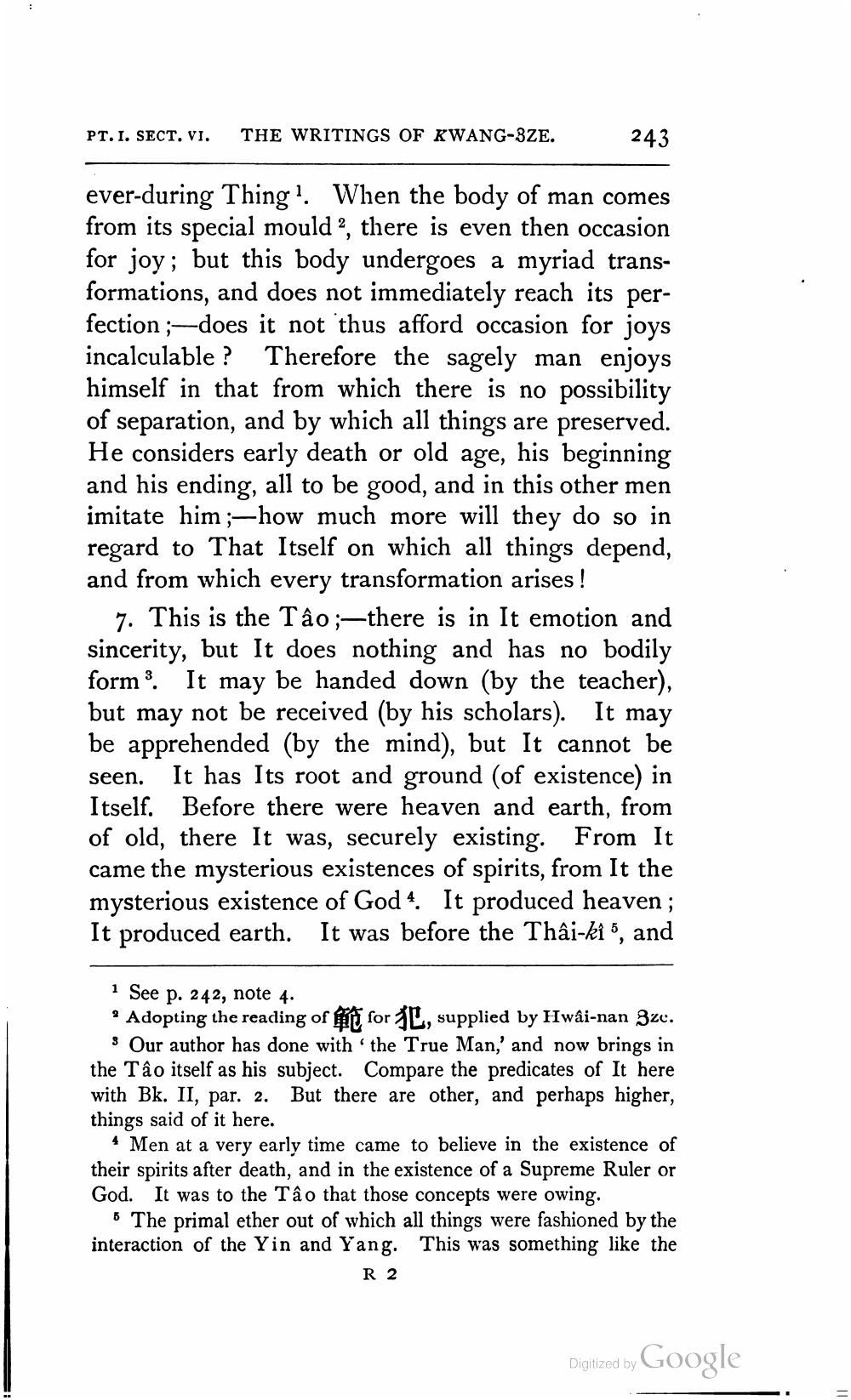________________
243
ever-during Thing'. When the body of man comes from its special mould, there is even then occasion for joy; but this body undergoes a myriad transformations, and does not immediately reach its perfection;-does it not thus afford occasion for joys incalculable? Therefore the sagely man enjoys himself in that from which there is no possibility of separation, and by which all things are preserved. He considers early death or old age, his beginning and his ending, all to be good, and in this other men imitate him;-how much more will they do so in regard to That Itself on which all things depend, and from which every transformation arises!
PT. I. SECT. VI. THE WRITINGS OF KWANG-3ZE.
7. This is the Tâo;-there is in It emotion and sincerity, but It does nothing and has no bodily form. It may be handed down (by the teacher), but may not be received (by his scholars). It may be apprehended (by the mind), but It cannot be seen. It has Its root and ground (of existence) in Itself. Before there were heaven and earth, from of old, there It was, securely existing. From It came the mysterious existences of spirits, from It the mysterious existence of God. It produced heaven; It produced earth. It was before the Thâi-ki 5, and
1 See p. 242, note 4.
* Adopting the reading of Our author has done with the Tâo itself as his subject. with Bk. II, par. 2. things said of it here.
* Men at a very early time came to believe in the existence of their spirits after death, and in the existence of a Supreme Ruler or God. It was to the Tâo that those concepts were owing.
for L, supplied by Hwâi-nan 3ze. the True Man,' and now brings in Compare the predicates of It here But there are other, and perhaps higher,
5 The primal ether out of which all things were fashioned by the interaction of the Yin and Yang. This was something like the
R 2
Digitized by
Google




